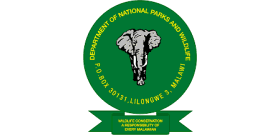 Lilongwe promotes eco-tourism and reintroduces 263 elephants to Kasungu
Lilongwe promotes eco-tourism and reintroduces 263 elephants to Kasungu
The Malawi authorities have just completed a major transfer of wildlife from Liwonde National Park to Kasungu National Park. The operation, which resulted in the reintroduction of more than 263 elephants, was carried out jointly by several organisations involved in the management of protected areas in Malawi.
A major wildlife translocation operation has just been completed in Malawi. The project was conducted jointly by the Malawi Department of National Parks and Wildlife (DNPW) in partnership with African Parks and the International Fund for Animal Welfare (IFAW). The operation involved the relocation of 263 elephants from Liwonde National Park to Kasungu National Park, a distance of about 350 km.
The elephants were moved at the same time as 431 other animals of different species, including impalas, buffaloes, warthogs, sable and waterbuck. “The relocation of the elephants and other wildlife is a significant achievement and demonstrates that DNPW’s approach to working with partners to secure its natural resources is sound. The partnership with the Government of Malawi is not over, Ifaw will continue to work in Kasungu to ensure that the park is restored to its former glory,”says Patricio Ndadzela, IFAW’s country director for Malawi and Zambia.
Developing ecotourism
The animals being translocated over a period of more than a month will have to settle on a 2 316 km2site. These herbivorous mammals will share this vast protected area with other species, including hippos, black hippotraps, roan antelopes, kudus, hartebeest, plains zebra and African buffalo.
These animals have to interact with several predator species including hyenas, wild dogs and servals and especially cape lions which were introduced in 2005 as part of a conservation programme for the species. The park was home to the African cheetah before Malawi gained independence on 6 July 1964. But the species has been considered extinct in Kasungu since the 1970s. Through the diversification of wildlife in Kasungu National Park, DNPW wants to accelerate the development of ecotourism. In 2018, Malawi welcomed 871,000 tourists.
With the gradual return to normalcy after the long period of uncertainty related to Covid-19, Lilongwe hopes to attract more foreign tourists. The recently completed animal translocation project is also a solution to the escalating human-wildlife conflict around Liwonde National Park. A biodiversity hotspot, the protected area is home to more than 1,000 buffalo, nearly 2,000 hippos, nearly 600 elephants and more than 7,200 other wild animals, according to African Parks. In 2019, Liwonde welcomed 23,000 tourists.
